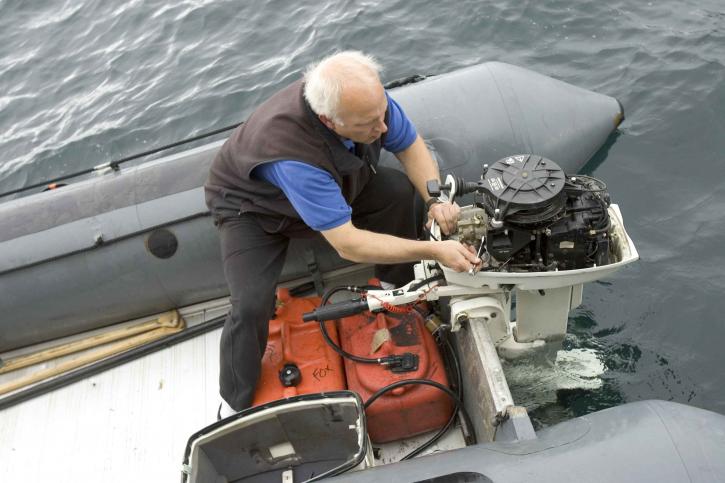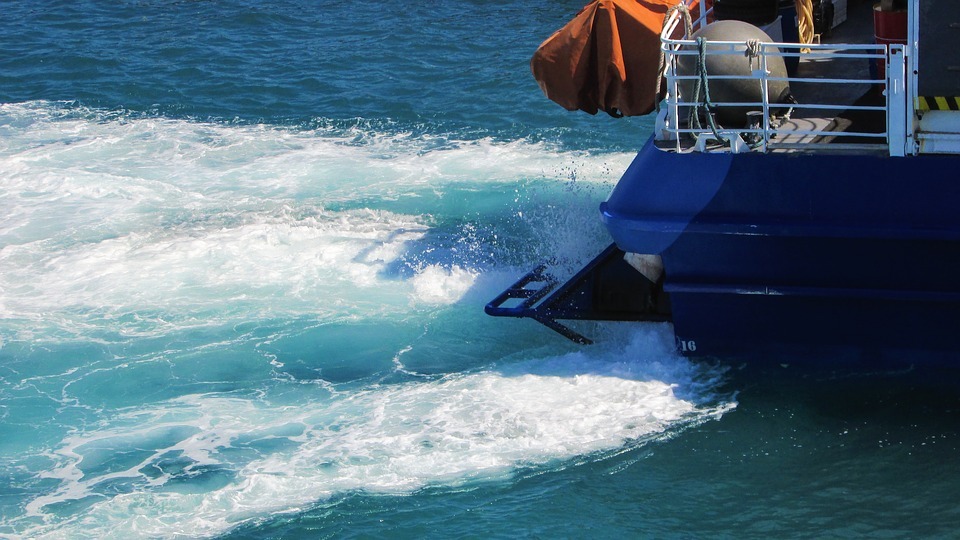For most people, having your own boat is a luxury and a ticket to a summer-long adventure without the need to rent a vessel for cruising the open waters. Once you have this kind of luxury, be a good steward and maintain it well to keep it pretty, safe and operating properly. Boats can deteriorate if not taken care of, so make sure it would last long.
A boat is not like a car, and unless you can afford a full-service marina, it would take consistent care to keep it in its best condition. Here are some maintenance tips all boat owners must keep in mind:
1. Clean your boat and wash it with proper cleaners
The first and simplest task you can do to take care of your boat is by washing it. Yes, you used your boat in the water, but it doesn’t mean it cleanses itself because it’s water. If you boat in saltwater, you need to rinse it with fresh water to remove salt residue, because salt can corrode metal and other hardware. When left too long, salt can also mar your gel coat. When in used in freshwater, the boat can still gather debris like wet leaves, sand, muck and other crud from the water. Use a hose to rinse the boat, and a long-handle, soft-bristle boat brush to brush off dirt and debris. Use specialty cleaners like marine boatwash soap formulated for gelcoat for best results. The car wash soap that you use with your car is your next best choice. It’s best to invest in these types of cleaners before settling for laundry soap (although you can also use it if there’s no choice).
Besides the body of your boat, you must also clean the windows when it gets too dirty. You need to pay special attention for the windows directly in line of spray as the boat travels through the water. There are window cleaners for boats, but some household window cleaners will also do.
Also, mind your deck and your flooring. A lot of cockpit floors are self-draining, so it would help you a lot. Remove the carpet, shake it, vacuum debris and pressure wash it. Under the carpet you may find food crumbs, dirt and water. Scrub your foredeck to get rid of dirt and stains.
2. Manage your gelcoat with proper materials
If you own a fiberglass boat, chances are it has a gelcoat that you need to properly maintain and protect both on the deck and the hull. Gelcoat is a tough and glossy finish that protects the underlying fiberglass on the boat. When in a poor condition, the boat can be chalky and hazy. Using the wrong cleaners can stain or dissolve them, but you can remove stains with careful buffing.
If your gelcoat is fading, you can still bring it back to its shiny condition by using elbow grease and wax. There are a lot of waxes and polishes for marine use. Waxes are used to protect and seal gelcoat, while polishes usually have a cutting agent to remove oxidation from the gelcoat, making it shine. Cleaner-waxes, on the other hand, contain both a polish and a wax.
3. Check your engine
Routine inspection of your engine is important for a trouble-free cruising. This is perhaps the most important part of your boat to look after. Every time you use your boat, check the bilge and hoses for any sign of leaks. The bilge pump pumps out water out of the boat’s interior. You should test it before seasonal use to make sure everything is in proper order. If it doesn’t start properly, there might be an electrical issue. If there are strange noises, there might be a mechanical issue. In both these cases, you may need to take your boat to a repairman or replace the entire unit depending on the damage.
Also, check your fuel level and don’t go out without plenty of fuel. Check if there’s fuel leaks. Check your water coolant level if needed. Check your oil in the reservoir if it’s enough, and while you’re running the boat, watch the oil pressure and voltmeters to make sure it’s running normally.
After your trip, flush your engine with fresh water to prevent deposits and salts from damaging your engine. Most modern boats have built-in freshwater flushing systems for your convenience.
4. Check your propeller frequently
If your boat runs with a propeller, it also needs regular maintenance. Check it before every trip for any signs of damage. During breaks throughout the season, detach the propeller with help from a friend to make sure discarded fishing lines, gunk or any debris hasn’t become wrapped around the propeller shaft. Ig a fishing line was stuck, have an expert check on it because it can cause gear leaks, and removing it is not a DIY job. Make sure the propeller shaft is properly greased as well.
Inspect your propeller for dents, nicks and other signs of damages. Even the smallest dents can cause your boat to have lower performance and burn excessive fuel. A damaged propeller can also vibrate, which can cause stress on bearings that can cause additional damage. If something is not fine, take your boat to a repairman.
5. Change your oil on schedule
When you inspect your engine, you also inspect the oil alongside. But low oil levels, or no oil at all, may cause problems with your boat. Change oil whenever it’s looking low to keep your engine running longer, stronger. Know the specific oil requirements for your boat, which varies from engine to engine. The easiest way to change oil is to take it to a certified dealer and have them change your oil. Usually, it needs changing at least once every 100 running hours or once a year.
You can also change the oil yourself using an oil wrench and oil extractor pump, but it will take a little practice to learn.
6. When not in use, keep the boat dry
When the boat is not in use, pull it out of the water and dry it. Drying it after use can help prevent waterline stains. Always keep a couple of towels around to wipe off your boat when it’s wet. Don’t let moisture linger, since saltwater can corrode boat components and moisture can encourage molds and mildew.
Besides keeping the boat dry, dedicate an area of your boat for dry storage. It’s a highly underrated tip, but it’s worth the effort to keep it dry. Keeping a dry storage area for your clothing and other gear makes a convenient and easy-to-clean storage. Anything prone to water can encourage growth of mold and mildew. Dry out your water toys, life jackets, towels and clothing first before storing them in your dry storage.
7. Protect and maintain your batteries
If your boat has batteries, don’t let them sit there in the off season, like during winter. If you’re not going to use your boat for months, take the batteries out, clean them thoroughly, lubricate metal terminals and bolts, charge them and store them in a safe place. Batteries degrade over time, even if you’re not using them, and it can still drain.
Regular boat maintenance includes checking the batteries and testing it at least once every season. Test the voltage meter to determine how much charge is left. Replace it if it’s running low.
8. Manage fuel
Of course, you need to make sure there’s enough fuel on your tank before you run your boat. But you must also know the proper fuel type for your kind of boat, as well as what additives your fuel may or may not need. Keep it filled when possible to prevent moisture from entering the tank. During off boating season, drain your fuel or add a protective fuel stabilizer.



